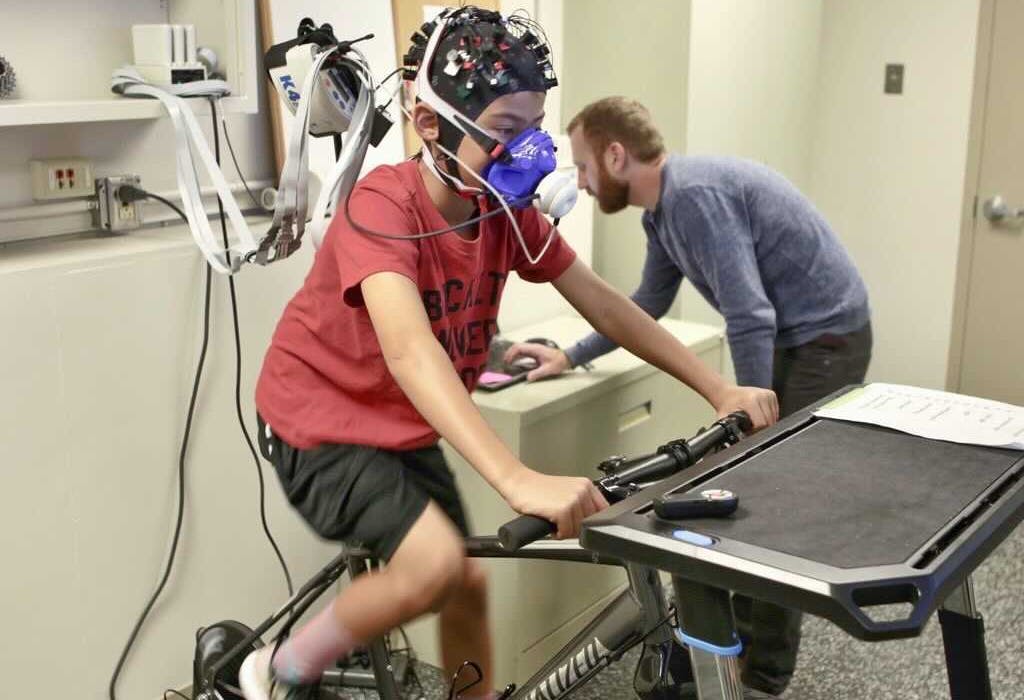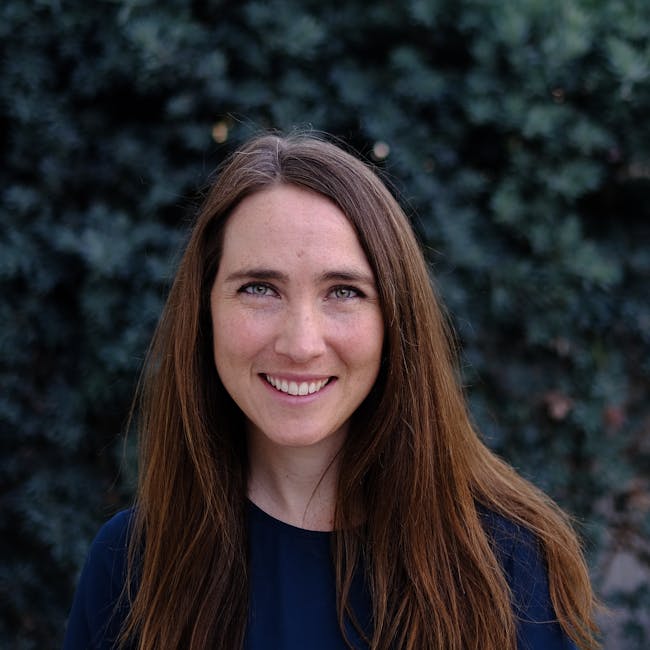Explore Our Network of Sites
Search
By:

We spoke with Esther Walker, Ph.D., about the research work Outride and its university partners are doing to advance youth bicycling.
Esther Walker was pursuing her Ph.D. in cognitive science at the University of California San Diego when she became a bike commuter. As she studied elements of psychology, computer science, statistics and neuroscience, her bike rides to and from campus became a time to destress and relax. By the time Walker graduated and was working in tech, she’d become a passionate bike racer.
When Walker saw that Outride — a nonprofit dedicated to providing evidence-based bicycle programs for youth — was hiring a research manager, the position felt tailormade to her background and interests. “Data really drives decisions, so being able to collect, analyze and interpret data is super important,” said Walker. “That’s the perspective I have brought to Outride.”
Walker started with the nonprofit in June of 2020, working to build up its research programs and serve as a resource for the bicycling community at large. In February of this year, PeopleForBikes announced a new partnership with Outride to support its mission and expand youth bicycling nationwide. We recently spoke with Walker about Outride’s research, the importance of centering historically-marginalized communities and the ways in which the nonprofit is making its data actionable.

PeopleForBikes: How does research fit into Outride’s larger vision?
Esther Walker: In addition to our Riding for Focus program and the Outride Fund, research is our third main programming area. We are constantly learning from our school and community partners, as well as working with a number of university partners. We’re using all of that data to inform our programs and bicycling initiatives in communities across the country.
For example, if there’s a school that wants to specifically focus on those with ADHD, then we work closely with our university partners to answer those questions and provide evidence-based recommendations in terms of how to implement programming. On the flip side, we also have a big focus on sharing back what we learn from communities.
What has Outride’s research shown so far?
At a high level, we know that physical activity is one of the best things that you can do for your health. So we know bicycling is good for your body, but it really goes beyond that. It’s good for your mind and a really great way to build social connections and community. Youths who regularly engage in physical activity report less depression and anxiety symptoms, have higher self-esteem and also perform better academically than kids who are inactive. We also know that despite all these known benefits, kids today are more inactive than ever.
Physical activity during school represents one of the few environments where kids have the opportunity to get moving but we also know all kids aren’t fans of traditional P.E., and in many cases, they have negative associations and try to avoid it. What we’ve seen is that bicycling really represents an activity that kids are excited about and that it can become a lifestyle.
As we’re teaching more kids to ride that didn’t have access to a bike before, we’re starting to see an increase in self-esteem and confidence, not to mention excitement around physical activity and the joy that comes with riding.
What has the research shown in regards to historically marginalized communities?
One thing that's been made very clear in our data is that there are huge disparities in access to bikes and safe places to ride. So many low-income and marginalized communities have less access to bikes and also less access to repairs, essentially living in bike deserts. So, fewer kids learn how to ride and see it as a safe option, contributing to poor mental and physical health outcomes. What we’re seeing is that communities that could benefit the most from access to bicycling are the ones that have the least amount of resources to support it.
Knowing all this, how does Outride act on the research to make things actionable and lead to change?
When it comes to structural inequities such as infrastructure, access to bike repair or access to equipment — this is where Outride wants to make a difference and help support and create connections within these communities. We’ve really focused on building up communities through bicycling through our Riding for Focus program and our Outride Fund. We specifically grant our programs to communities that are low income or historically marginalized.
For those who may not know about bicycling or our programs, we do a lot of outreach to let people know that Riding for Focus is available to come to their school for free. Then later, through the fund, we can help build up bicycling ecosystems in those communities. We always want to make sure that our work is done through the voice of the communities and that they’re the ones building up these programs and deciding what works best within each ecosystem.
Do you always collect a mix of qualitative and quantitative data? Why is that important?
We do collect a mix. The quantitative numbers really help us to track the impact over time that we're having on these schools. The qualitative side really helps us put that hard data into perspective by allowing us to hear directly from the students and communities about what they found effective. The best way to learn is often to just ask someone their perspective.
How do Outride and your university partners solicit research volunteers? Are participants compensated in any way?
Before conducting any research (whether with youth or adults), all projects by our university partners are reviewed by an Institutional Review Board [IRB] to ensure the rights and welfare of any research participants are prioritized. Youth must voluntarily agree to participate in the studies (and also have the consent of their parents), and they can stop participating at any time, for any reason, no questions asked. Each university partner determines how to compensate their participants for their time while ensuring not to coerce participants into participating with excessive compensation.
As for our Outride programs, in order to continually monitor the impact of our school-based physical education programs and identify areas for improvement, schools are provided with pre and post-program surveys. Participating in the surveys is optional for students, and all surveys and data collection processes have been reviewed and approved by an external IRB.
What are some areas you want to dig in or focus future research?
We really want to hear back from communities. Aside from working with our university partners, we’re really interested in learning how we can sustain and support interest in biking and physical activity beyond the classroom. How do we build up sustainable bike ecosystems in prior bike deserts? What are the long-term impacts of introducing bicycling to youth?
Outride is hosting its 2021 virtual research summit this July. What should people know?
Outride’s 2021 Research Summit, “Advancing Youth and Community Well-Being Through Cycling,'' will be on July 28. For the first time, we’re going to be opening up submissions and inviting people to share the great work that’s being done in the world of bicycling. The summit will be a space where those doing the work around the benefits of bicycling can learn from one another and put that research into practice. The larger goal is to capture it all and share it back with our communities to help make an impact locally.
Outride’s 5th Annual Research Summit: Advancing Youth and Community Well-Being Through Cycling will take place on July 28, 2021. Attendance is free and open to the public. Click here to register to attend.
Researchers, community organizations, youth and students engaged in relevant research are strongly encouraged to submit work pertaining to the theme “Advancing Youth and Community Well-Being through Bicycling” and present at the 2021 Research Summit. Submissions are open through May 31, 2021. More information about the call for proposals can be found here.